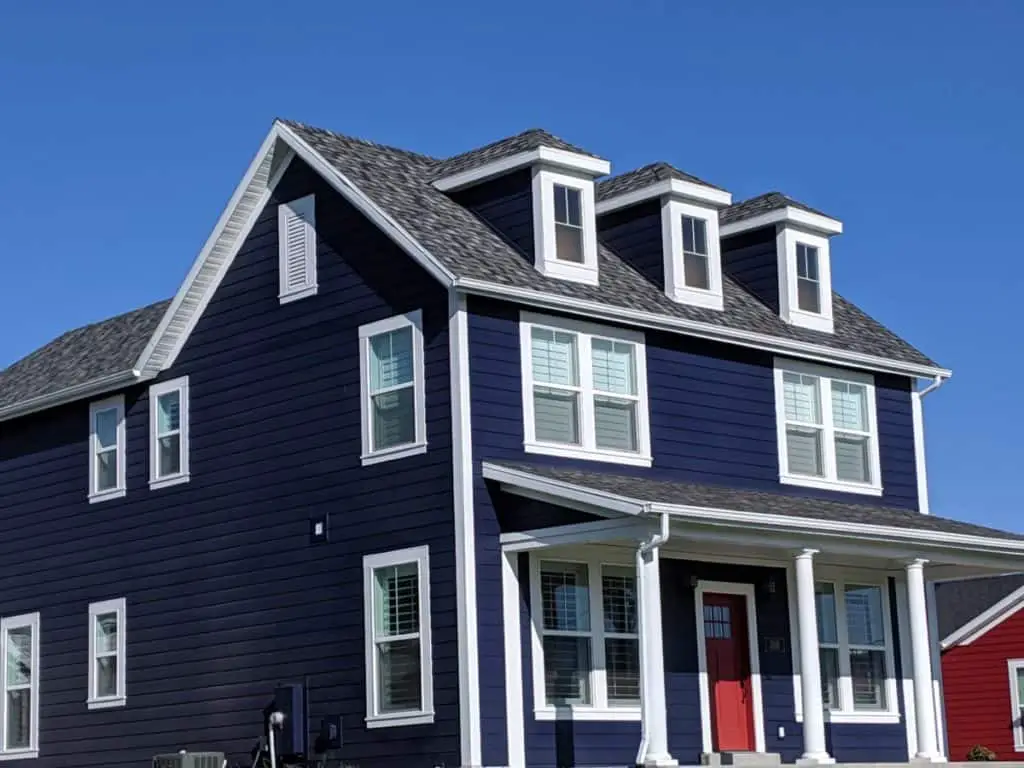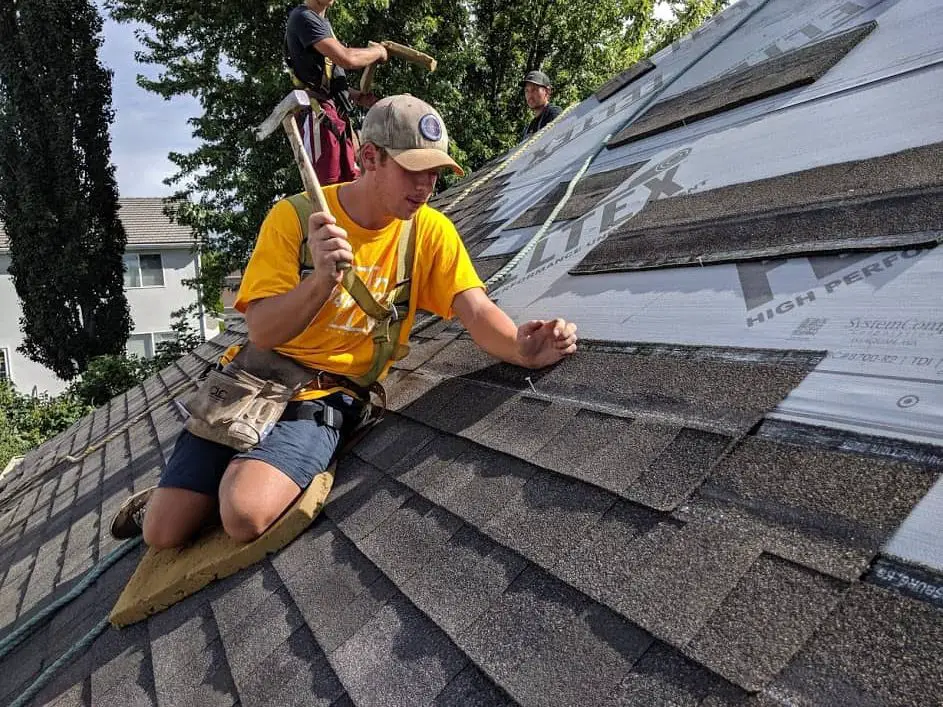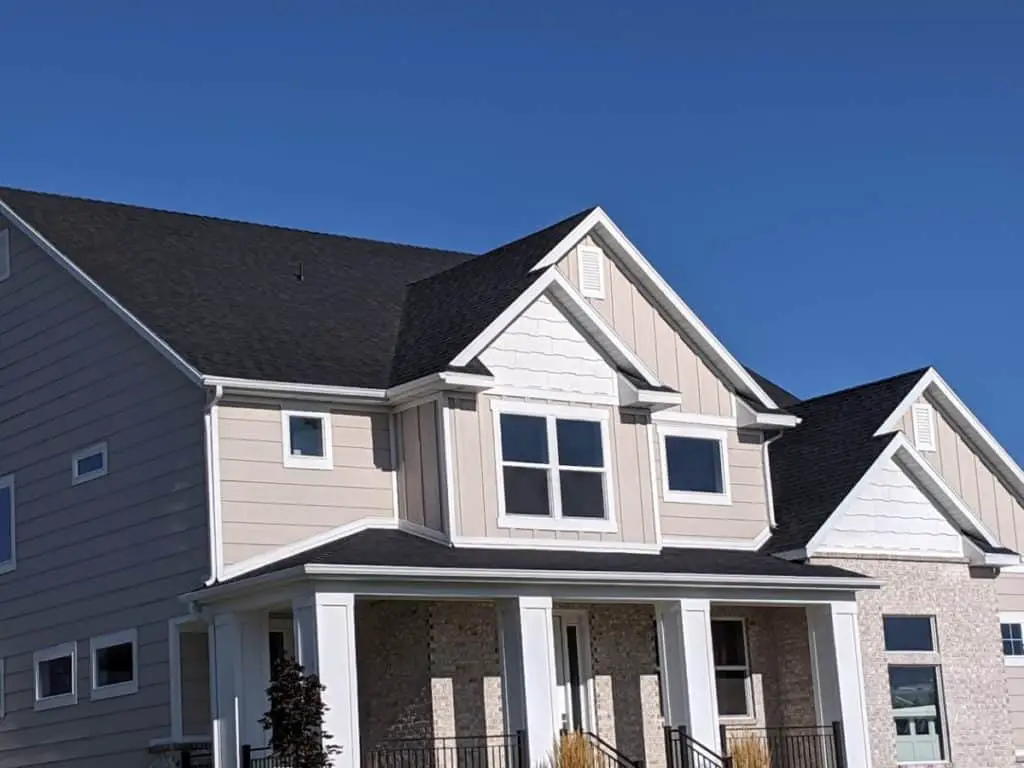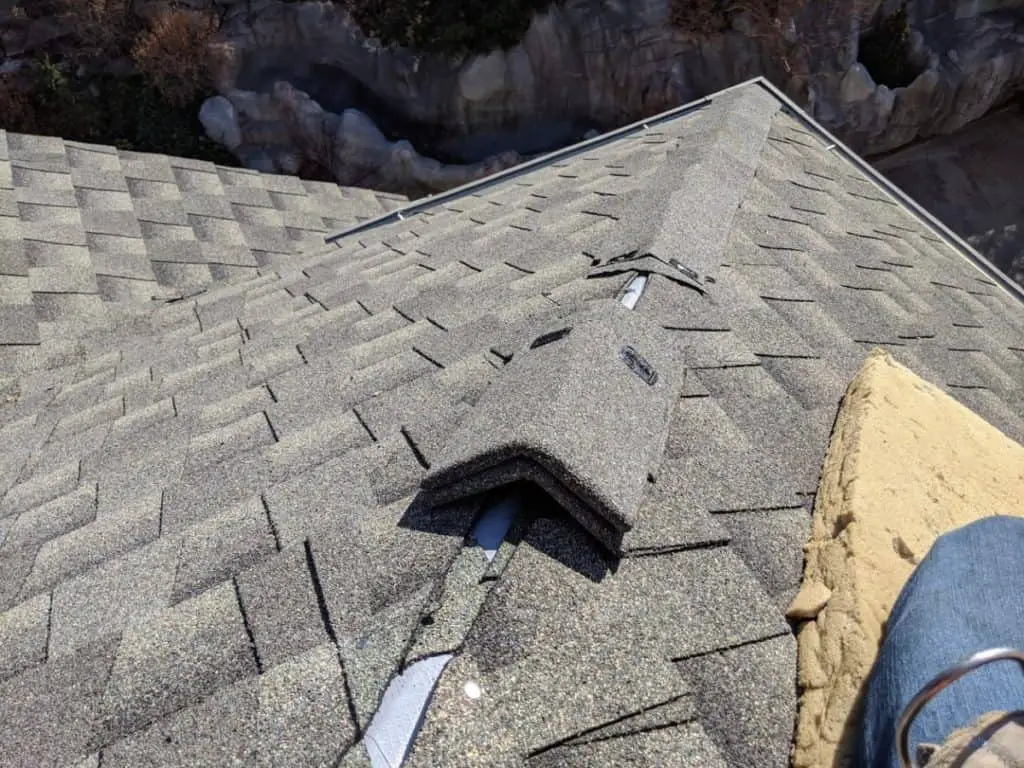
What are asphalt shingles?
Asphalt Shingles are one of the most common types of roof materials out there.
Asphalt Shingles contain a membrane that is either made out of organic materials such as wood, cardboard, and paper. Or more commonly, they are made out of a fiberglass membrane.
Each type of membrane is covered in several layers of asphalt, the top surface is then covered in a ceramic coating. The ceramic granules are made out of solid volcanic lava, basalt, or granite that has been ground down.
Pros:

1. Affordable:
Asphalt shingles are an affordable roof system. The cost for shingles excluding the installation costs is anywhere from $75 to about $200 per 100 square feet.
2. Easy Installation:
Asphalt shingles are easy to install and tear-off. Another great advantage to them is that you can have multiple layers. Instead of tearing off the first layer of shingles and replacing it. Homeowners can choose to just cover up the first layer of shingles with a new layer of shingles. This saves labor costs.
3. Variety of Styles:
Asphalt shingles come in a variety of styles that can fit any taste. Some of the styles include but aren’t limited to:
- 3-Tab Shingles
- Designer Shingles
- Architectural
- Special Architectural
They also come in a vast variety of colors. You can click here to learn more about the different styles of shingles and other roof materials.
4. Low Maintenance:
Asphalt shingles do not require any maintenance. DO NOT PRESSURE WASH YOUR SHINGLES! I have heard of people doing this. Don’t do it!! It weakens your roof and reduces its lifespan. There is no reason to pressure wash your roof.
5. Fire Resistant:
The most common type of shingle has a fiberglass membrane which gives the shingles a Class A fire rating which is better than the opposing one which is a class B that comes from the organic membrane shingles.
6. Algae Resistant:
The granules on the shingles aid in prevent algae growth. Some manufacturers will even mix ingredients like copper in with the granules to prevent algae from growing on the shingles and creating black streaks.
7. Lifespan:
The lifespan of asphalt shingles ranges anywhere from 20 to 50 years. Depending on what style of shingle it is.
8. UV Resistance:
Some asphalt shingles are especially resistant to UV rays. They reflect UV rays which protect the lower layers of the roof and helps to keep your energy bill down.
Cons:

1.Wind Resistance:
Not all asphalt shingles are created equally. The 3-tab style shingle is more affordable but it’s not as durable. It’s particularly prone to wind damage. The 3-tab style is only rated for wind speeds up to 60 mph. However, they do make more durable shingles like the storm-resistant 50-year shingles which can withstand wind speeds up to 130 mph.
2. Hail Damage:
Most asphalt shingles are not super resilient to hail damage. If a roof is newer than 10 years, it usually will hold up in a hail storm. But older than that the shingles will probably get damaged and need to be replaced or repaired.
3. Impact Damage:
Pretty much any impact damages to asphalt shingles will weaken the roof and lower its lifespan. This can come from fallen branches during a storm or from birds pecking where that is prevalent.
4. Messy Granules:
As the shingles wear down, they start to lose the granules at the top. This can be a little messy and is often found in gutters and at the bottom of drain spouts. When doing a roof replacement, there are a lot more granules that break off and often end up in flower beds and other areas surrounding the roof.
5. Lifespan:
The lifespan of asphalt shingles, particularly those around the 20-year mark, may not be the best investment for everyone. Click here to check out the lifespan per dollar spent for different roofing materials so you can see how asphalt shingles compare to 16 other types of roofing materials.

Alternative Options:
If you are not sure if you want an asphalt shingle roof you may consider looking into one of the 16 other possible roof options. I spend several months researching and writing a 10,000+ word article to make a complete guide for 17 Different Types of Roofing Materials Used Today. That article can help you to learn about all the different types of roof materials. Some of which you probably didn’t even know existed.
